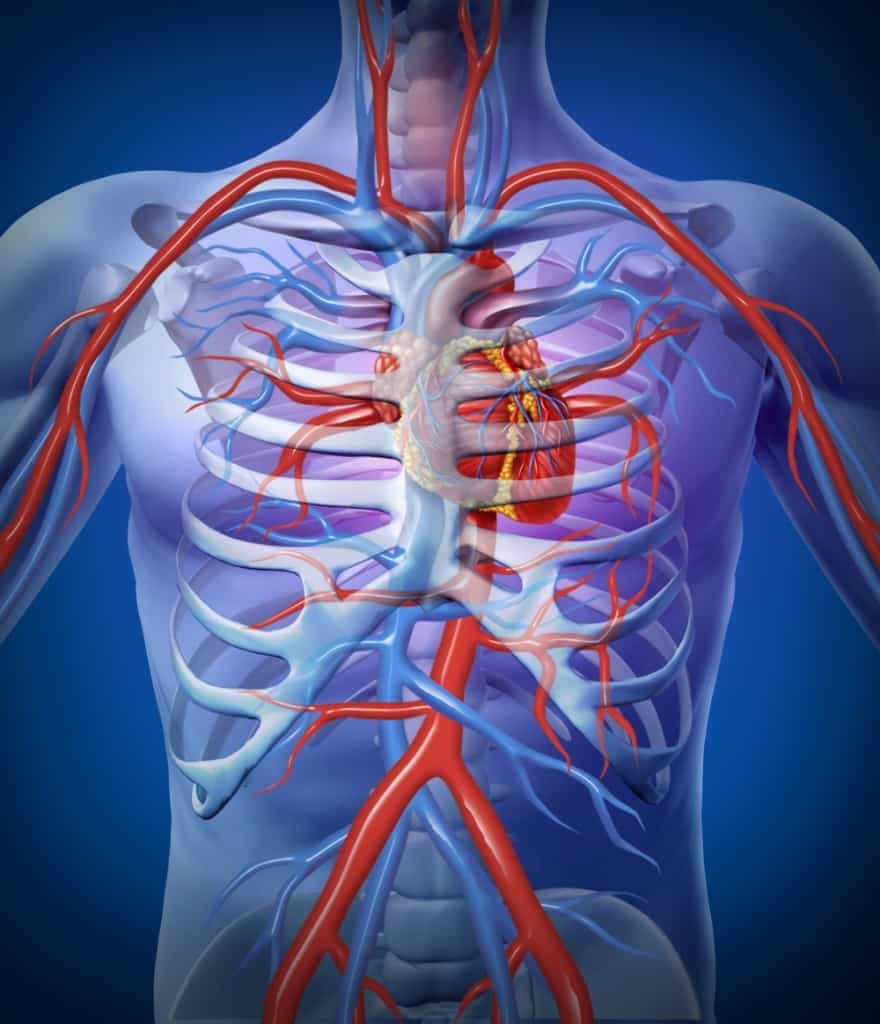
To understand the benefit of Nitro in the treatment of Acute Coronary Syndrome (ACS) it is helpful to first understand why cardiovascular disease can cause pain. As you will recall, the heart is a muscular pump. Like all muscles, it requires oxygen. The heart gets its oxygen supply from blood flowing through the coronary arteries on the surface of the heart. The harder the heart is working, the more oxygen it requires. This is why chest pain of cardiac origin is often preceded by physical or emotional exertion. The heart has to pump harder and faster during these times to meet the demands of the body.
In atherosclerotic heart disease, the flow through one or more coronary arteries becomes critically limited by the buildup of plaque over time. This happens because of damage to the blood vessels from such risk factors as smoking, diabetes, hypertension, aging, and high cholesterol levels. The plaques are made of cholesterol deposits with thrombus formation. The clotting that occurs at these sites is why aspirin (ASA) is also used as a treatment and prevention for coronary artery disease.
EMTs have three medications to begin treatment of Acute Coronary Syndrome in the field: Oxygen, ASA, and Nitro. Remember this disease is a mismatch between supply and demand of oxygen to the heart muscle. So we provide more O2, which increases the concentration of O2 in the blood. This may increase the amount of O2 getting to the compromised area. As noted above, ASA is given to prevent further clotting and narrowing of the arteries. We also give Nitro to reduce the work of the heart, thereby reducing O2 demand.
Nitroglycerine is a vasodilator – it dilates the venous system. So this reduces the volume of blood flowing back to the heart (also known as preload reduction) and therefore the heart does not have to work as hard. This preload reduction results in a lower O2 demand by the heart muscle thereby reducing chest pain. One would expect the blood pressure to drop and the heart rate to reflexively increase and this is typically seen. Fortunately, the reduction in pressure offsets the mild increase in pulse so overall the work of the heart is reduced.
This drop in blood pressure is the reason nitro it is not given with sexually enhancing drugs. These drugs also have a vasodilation effect and the combination can cause a catastrophic drop in blood pressure.
Nitroglycerin is given as a spray or dissolving tablet under the tongue where it is rapidly absorbed into the circulation. The effects occur very quickly. This is why it can be repeated up to 3 times, every 5 minutes if needed, as long as there are no symptoms of hypotension.
Remember don’t give nitro if systolic BP is less than 90 or if a sexually enhancing drug has been used in the past 24-36 hours.


